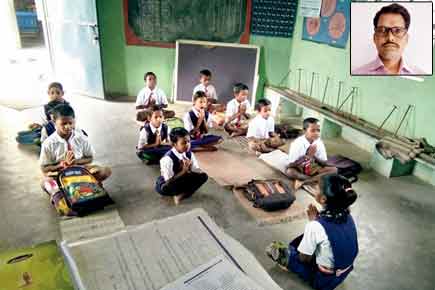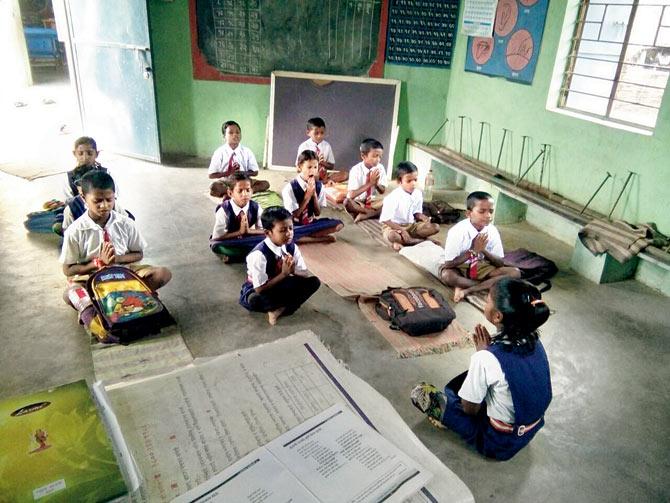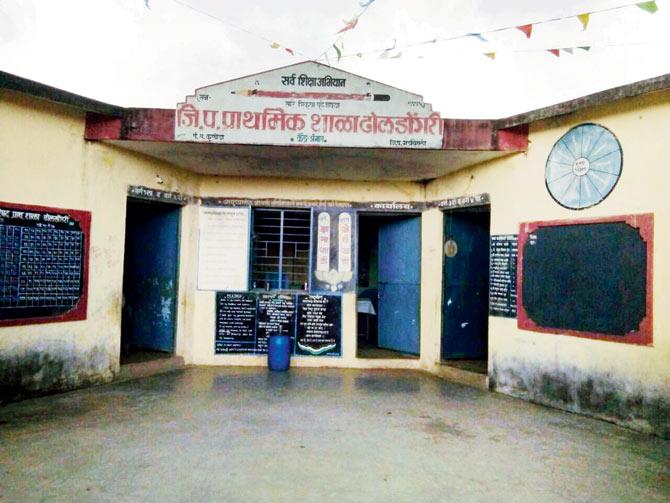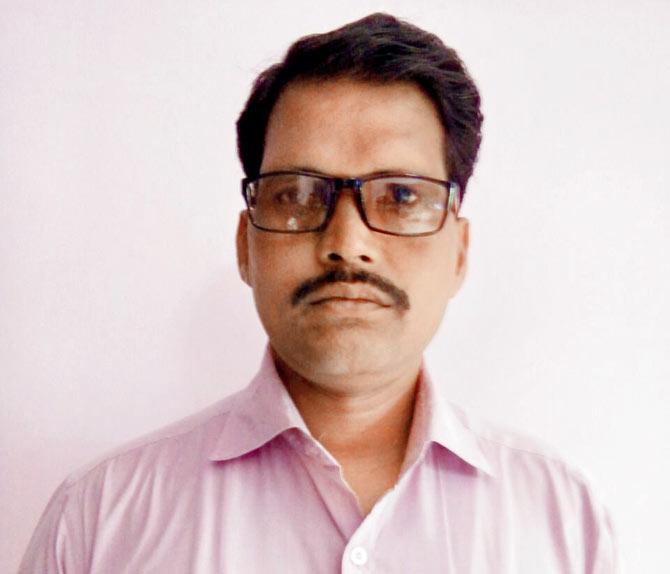Meet the headmaster who single-handedly scripted the success story of a Naxal-infested tribal hamlet in Gadchiroli, with his enterprise

Tomorrow, on Teacher’s Day, when 42-year-old Dhanraj Dudhakuwar will address a motley crowd of students and their parents at a local school in Gadchiroli’s Mauja Dholdongari village, the event will see another celebration. “I will be felicitating Dudhakuwar for his effortless contribution towards educating tribal children,” says Gopal Chandikar, who runs the NGO Srishti in Gadchiroli. For the villagers in the know of this special surprise, there could be no better occasion than this day — the birthday of master educator Dr Sarvepalli Radhakrishnan, to celebrate Dudhakuwar, the man who single-handedly scripted the village’s success story and transformed its education system within a span of 12 years.

The zilla parishad school in Gadchiroli’s Mauja Dholdongari village has only two rooms, and runs classes for students between Std 1 to 5 through the day
ADVERTISEMENT
In 2004, when Dudhakuwar, a BA Marathi graduate, first arrived at the tiny tribal hamlet of Mauja Dholdongari, situated in Kurkheda taluka, 75 km north of Gadchiroli district, the plan was that he would stay in the village for not more than two weeks. Dudhakuwar was appointed as the headmaster of the village’s first zilla parishad school, on a temporary basis for 15 days. However, the miraculous changes he brought within the school and the 160-member village, within the next few days, convinced the education department that he was the right man for the job.

A school rebuilt, brick by brick
The village’s first zilla parishad school was established on January 1, 1995, with DD Sahare as the school’s first teacher. However, when Dudhakuwar joined, he realised that there was no proper building to run the establishment. All classes were being conducted at the house of the village head, Sanau Hilako, who passed away recently at the age of 80.

Dhanraj Dudhakuwar
Dudhakuwar recalls that initially, the villagers were suspicious of every outsider who visited them. “They warned me to stay away from their hamlet and also tried to scare me, saying that the Maoists were regular visitors to their village. Had it not been for the support of Hilako, it would have been very difficult to convince them to send their children to school,” says Dudhakuwar. He paid Hilako Rs 25 for renting his home.
Another barrier was language. The villagers only spoke in their mother tongue, Gondi, which made it difficult for him to communicate with students when conducting classes.
Dudhakuwar then sought the help of Hilako’s eldest son Raisu, who had just cleared his Std 10, to overcome this deadlock.
He used to teach the class in Marathi, while Raisu would translate the session in Gondi to the students. Dudhakuwar paid Raisu Rs 1,000 from his own salary, for his efforts.
Together, they successfully managed to get past the first academic year. In the process, the students also picked up Marathi.
Dudhakuwar would also meet the parents regularly to try and convince them to send their kids to school.
“The parents wanted me to teach the kids only for an hour, as they wanted their boys to help them in farming and the girls to do domestic work. But, gradually, after some counselling, this mindset began to change,” said Dudhakuwar, who originally hails from Chope village, which is also situated in the Gadchiroli district. A year later, after several follow-ups with the gram panchayat, he was able to rustle up R3.5 lakh to build a two-room school. Soon after work on the school building was completed, the village got permission to construct an unpaved road to make commuting easier for students.
In the throes of change
Today, the literacy rate, which was once very low, has improved drastically. Dudhakuwar has been working round-the-clock to ensure that children from the village attend school. Currently, 19 children (10 boys and nine girls) attend school daily.
“Despite being located in the sensitive Maoist-affected area, the tribal hamlet of Dholdongri has seen a positive change because of Dudhakuwar. The tribals have even started communicating in Marathi with outsiders, which was not the case before,” said NGO-worker Chandikar.
Two months ago, the hamlet also got its first electric poles installed. While the area now has power connection, Dudhakuwar’s school is still devoid of electricity. Once the school gets power supply, Dudhakuwar intends to begin special evening classes for students appearing for their board exams. The school only holds classes till the primary section, but Dudhakuwar hopes to extend it to higher secondary section.
Ramla Harsingh Hilko (19), a former student of Dudhakuwar, is the most qualified female student in the village. She is now pursuing Vocational Commerce from a college at Malevada, which is 12 km from her village. “She is a bright student and her dream is to appear for the civil services examination. She even helps other children with their studies at the village school,” says Dudhakuwar.
Speaking to mid-day, ASR Naik, collector, Gadchiroli, said, “We will provide the required grants for installation of lights and fans, within the classroom soon. I will also speak to the education department heads within Gadchiroli and ensure that Dudhakuwar gets permission to hold classes till Std 12.”
 Subscribe today by clicking the link and stay updated with the latest news!" Click here!
Subscribe today by clicking the link and stay updated with the latest news!" Click here!







